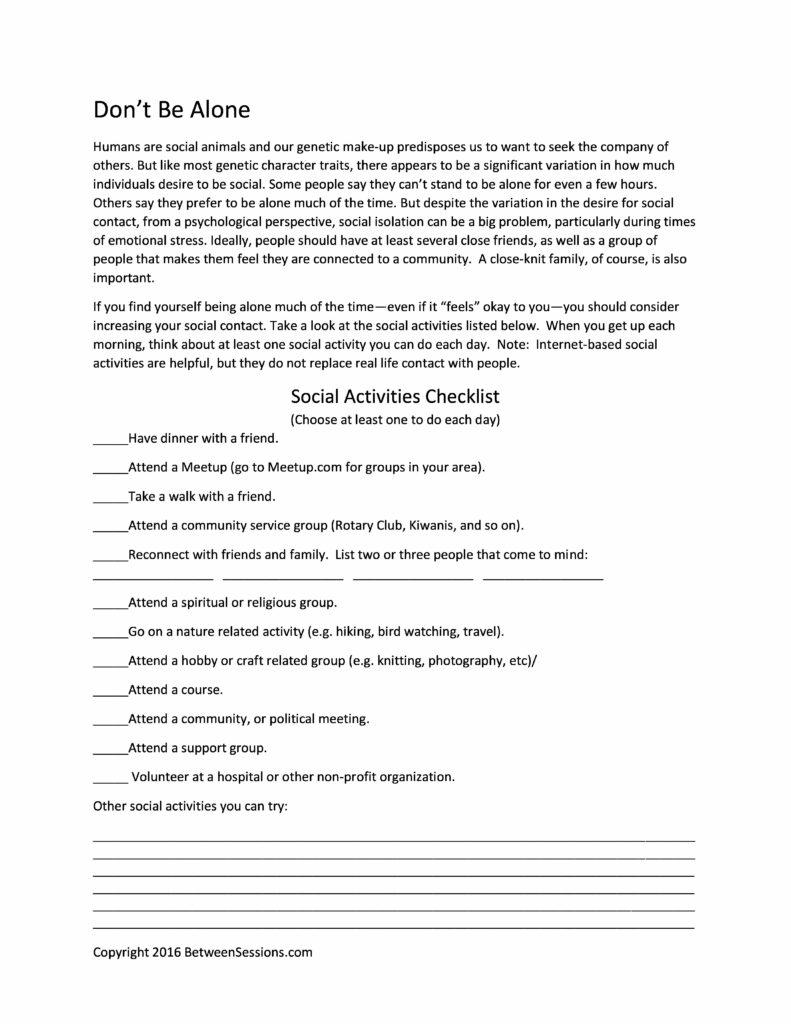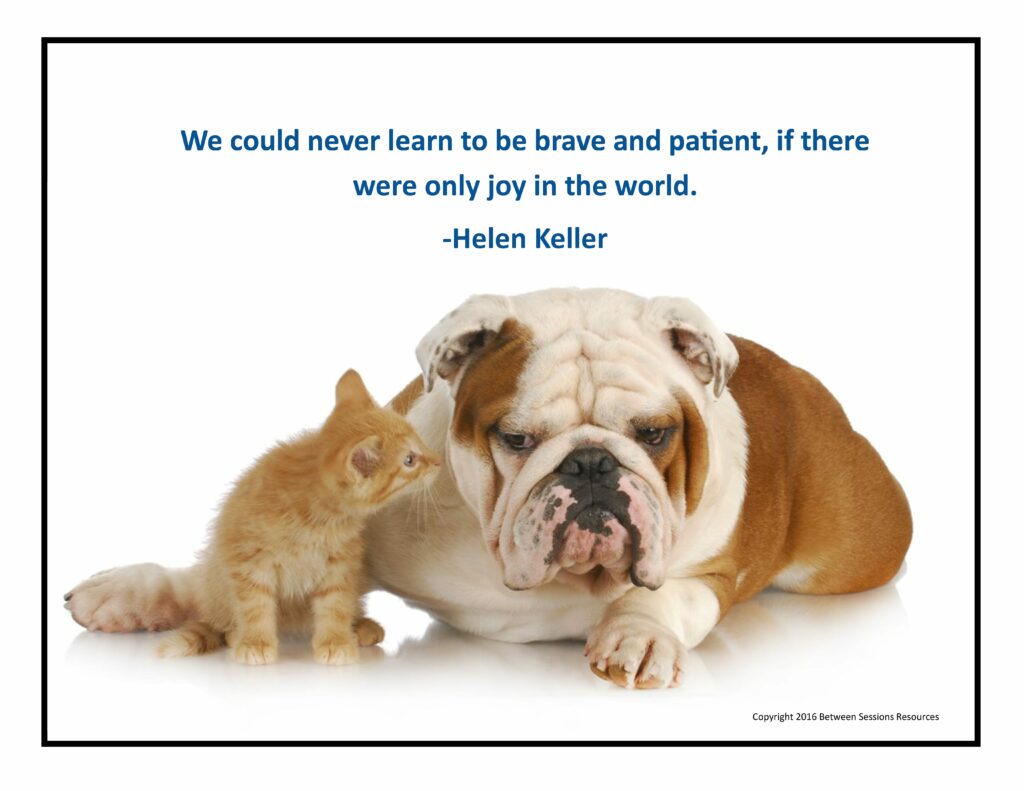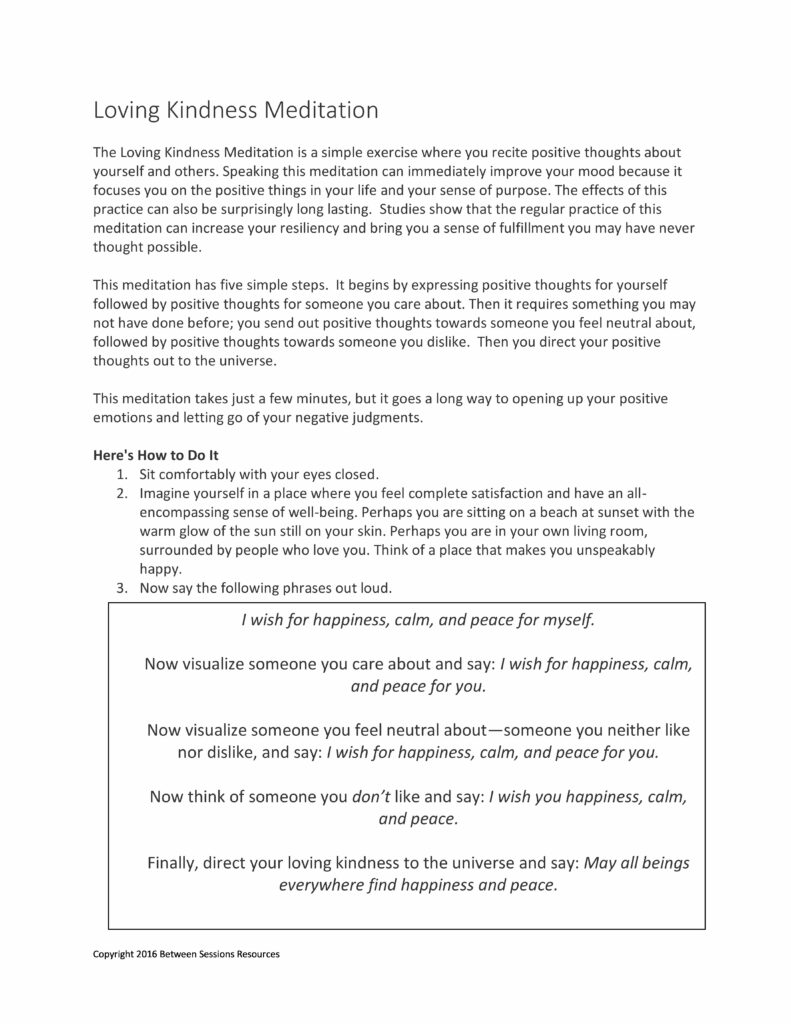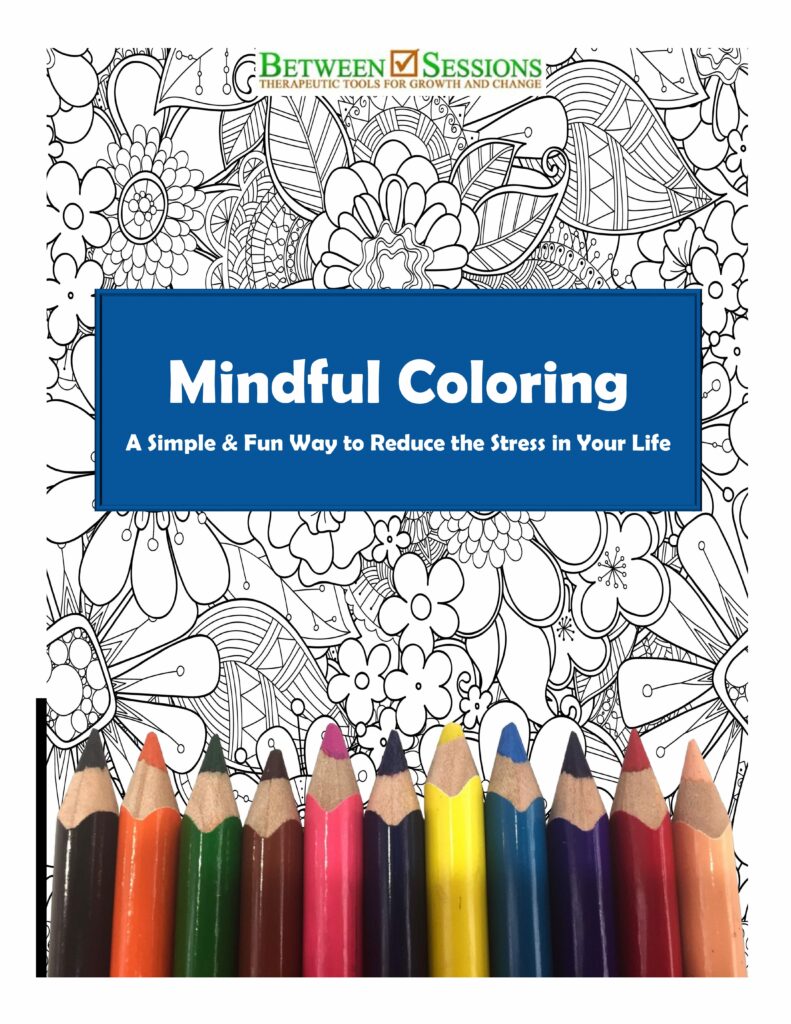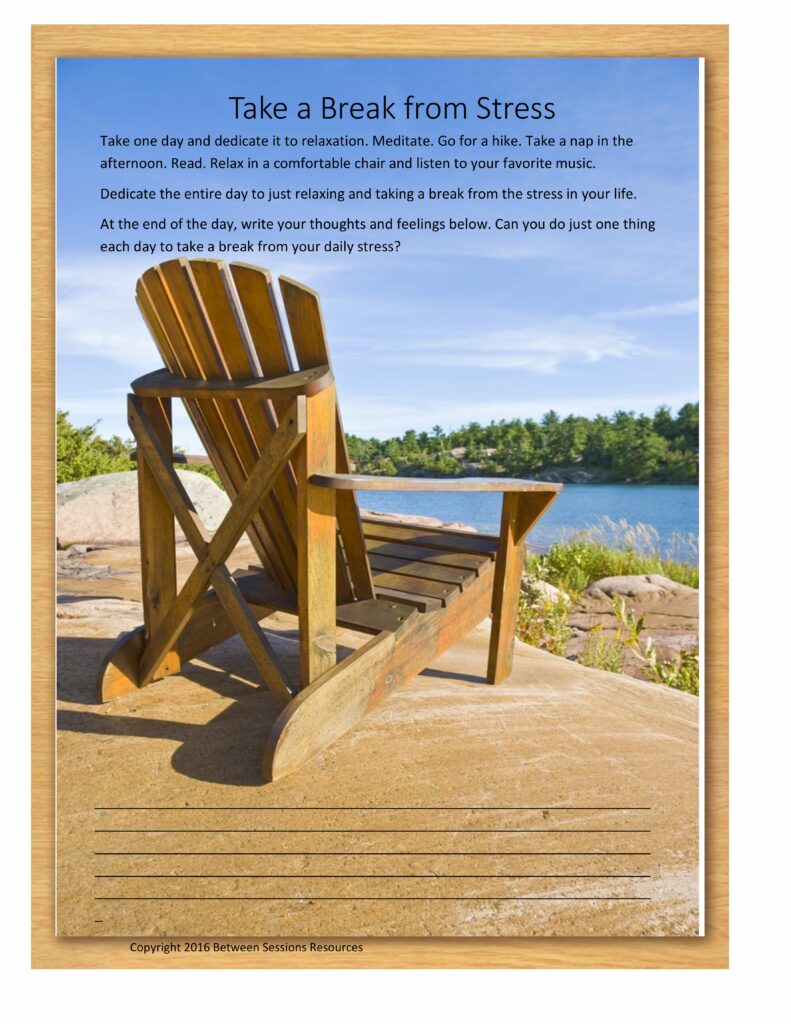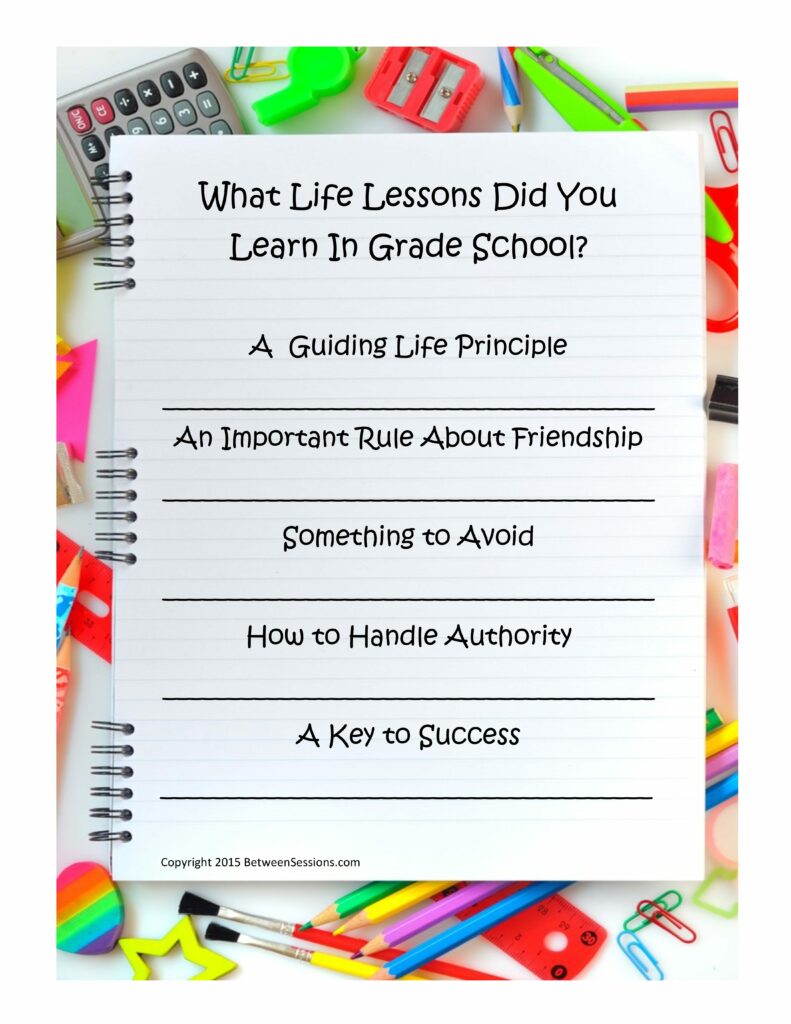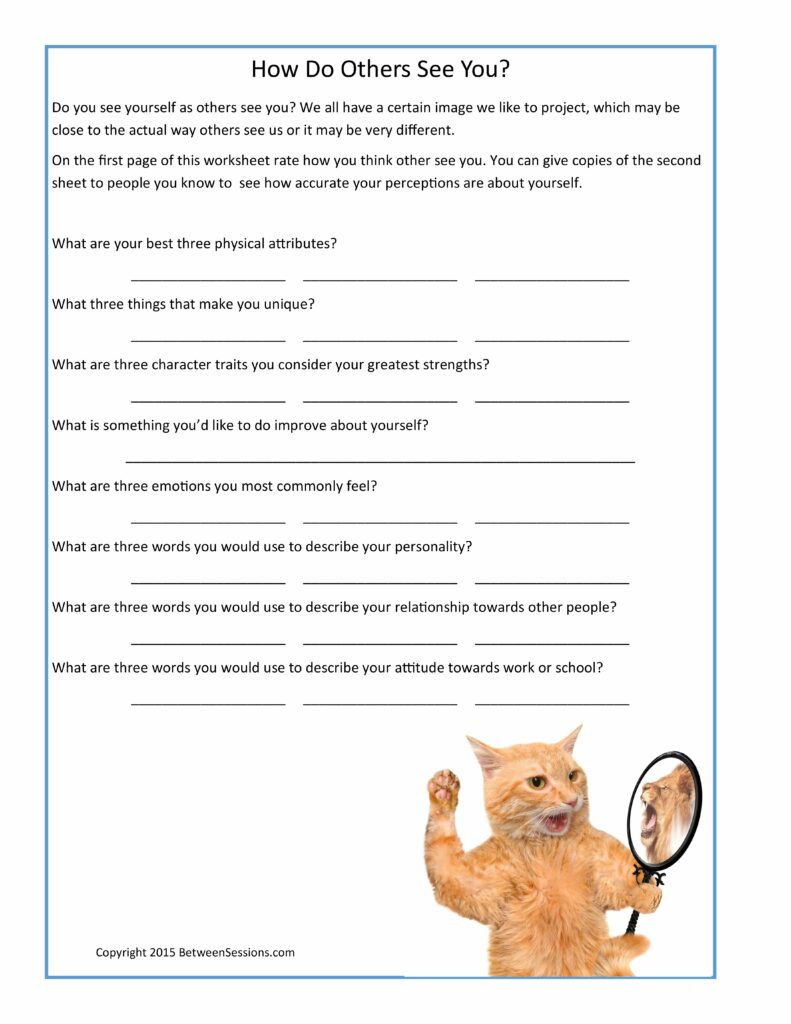These two worksheets are designed to help people deal with obsessive thinking. The first worksheet asks people to write down and rate their upsetting thoughts. The second worksheet asks people to imagine their upsetting thoughts are on clouds, and to let them float away without reacting to them. (OCD, CBT, exposure therapy, anxiety, 0717).
This worksheet is designed to help people see the importance of social activities as an integral part of mental health. It gives individuals a list of possible social activities to do each day. (Asperger Syndrome, depression, social development, 0616)
This mini-poster is a humorous reminder that life can be hard at times but we can learn to tolerate our difficulties. (DBT, emotional intelligence, 0616)
This worksheet is designed to teach people the technique of Loving Kindness Meditation. Research suggests that this simple meditation can have a long term effect on people’s happiness. (ACT, meditation, happiness, mindfulness, depression, 0616)
This worksheet is intended to help people make compromises rather than be stuck between two extreme positions. (DBT, CBT, problem-solving, 0216)
Mindful coloring is a simple way to teach the benefits of mindful meditation. This coloring book includes an introduction about the basic premise of mindfulness and 11 coloring pages. PDF (mindfulness, ACT, DBT, 0416).
Take a vacation from stress and dedicate just one day to living “stress free.” Sometimes this is harder than you think! At the end of the day, think about how you were able to create stress-free time, and how you can apply this to your normal life. Stress is a normal part of life and learning to control and cope with stress is an important part of good mental health.
This worksheet is designed to teach to avoid looking at their problems with absolute (black and white) thinking. Absolute thinking distorts reality and limits choices. People are asked to identify a problem, think of four “black and white statements” that pertain to that problem, and then change those thoughts to “full color.”
This worksheet asks people to think back to their years in grade school and the “life lessons” they learned. Answering the questions on this worksheet will likely bring up other thoughts and memories about what happened in these childhood years. (0115)
The first part of this worksheet asks people to answer questions about themselves and then a second part can be used to ask the same questions to others. The worksheet is intended to help people see if their perception of themselves is very different than how others see them (self-perception, 1215)


